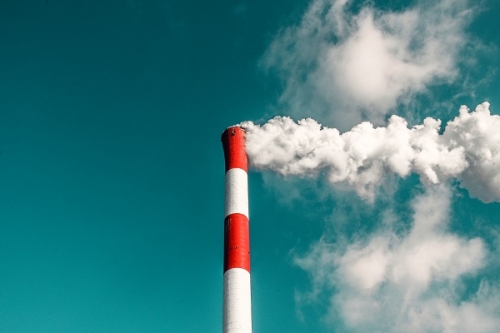Over the last few years in particular, pollution has become one of the main factors that is driving migration. Lots of skilled professionals living in places that are highly polluted are looking at relocating. This could be either because of immediate reasons such as allergies, or the result of taking into consideration the long-term effects of pollution. In countries like China, the term ‘smog-migration’ has been coined to explain the growing trend of locals migrating to cleaner places.Pollution can be very damaging to the environment and to health; it affects animals, plants and humans alike. It is typically caused by industrial pollutants and the increased use of fossil fuel these days, fumes from vehicles, the use of pesticides in agriculture, the increased use of plastic in packaging, and other forms of environmental pollution. Pollution causes allergies, asthma, respiratory conditions ranging from mild irritation to severe infections, and can lead to a variety of illnesses and other chronic diseases. The impact also extends to the entire ecosystem, and is becoming a growing concern in a lot of metropolitan cities around the world.
Places like China and India are especially known for their pollution levels. Over the last few years, there have been regular alerts from local authorities, and news reports in the media, warning about pollution levels that are several times the acceptable limits in Indian and Chinese cities like New Delhi and Shanghai. As a result, many expats in these locations have chosen to move to cleaner destinations, and many more are actively planning to do the same.
If this is something you’ve been thinking about, or if you want to move abroad for the first time but are concerned about pollution levels, here are some of the cleanest places in the world.
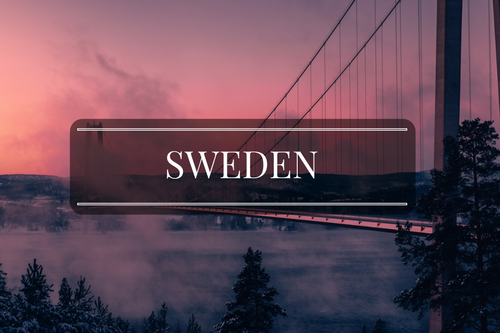
Apart from the obvious reasons like producing exquisite chocolate, and being home to picturesque mountains and landscapes, Sweden is also known for its cleanliness. Environmental laws are very strict here. Compared to the rest of Europe, the air and water are more clean here, and even though the Swedish people produce just as much waste as other Europeans, only about one percent of it ends up in landfills. There are 32 waste-to-energy (WTE) plants across the country. These plants have been known to incinerate more than two million tons of waste on an annual basis. Whatever can’t be reused or recycled ends up at these plants and gets converted into energy. Sweden also imports waste from other European countries and burns it.
Other reasons why Sweden is popular among expats include that most employees get at least five weeks of paid leave through the year. Parents get 480 days of paid parental leave between them to look after their families. Even though the taxes are high, there are many healthcare and education benefits that are provided as a result. The focus in Sweden is on living a comfortable and relaxed lifestyle and having the time to enjoy life.
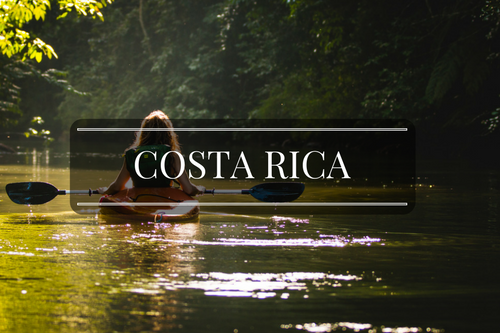
Located in Central America, Costa Rica is known to be one of the most beautiful and clean places in the world. The country boasts of a wealth of diverse flora and fauna and prides itself on safeguarding the natural biodiversity here. In 2015 Costa Rica successfully managed to run entirely on renewable energy for more than 250 days. The country’s main source of energy is hydropower facilities powered by seasonal rains and rivers. Other sources of energy are wind turbines, geothermal plants and solar panels. Deforestation has been determinedly avoided in order to protect the natural beauty of the country and also protect the natural habitats of local animals and birds. Costa Rica plans on becoming carbon-neutral by 2021.
The country has a very stable constitution and works hard at advocating for human rights, conserving the environment and maintaining peace in the region. The cost of living is quite affordable, with basics like housing and groceries being particularly economical. You can live as lavishly or as frugally as you would like to. Costa Rica is also known for its healthcare, which is affordable and yet of a very high quality. Residents can choose between public and private insurance, or even combine the two.
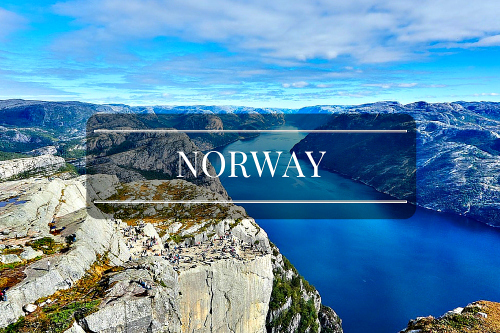
Norway is a popular tourist destination; it is known to be one of the most beautiful countries in the world and also one of the cleanest. There is an abundance of natural resources like natural gas and petroleum here. Recycling is part and parcel of everyday life, as most Norwegians care about the environment and want to do their bit to keep it clean. The surroundings here are picturesque and most locals enjoy an active lifestyle.
Living in Norway offers expats the opportunity to experience a different culture. Most locals speak excellent English, which makes it easy for most expats to communicate. The school system here is not very expensive and offers a well-rounded education; university education here is free of charge. Another great draw for expats to move here is the high standard of living. In addition, the culture here is deeply rooted in family, which is partly why work days are only about 7.5 hours long and evenings and weekends are usually free.
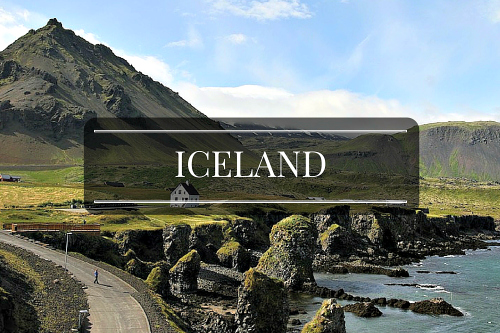
Also known as the Republic of Iceland, the country has a small population and mainly consists of mountains, glaciers and lava fields. It is considered to be one of the most developed countries in the world and boasts a 100 percent literacy rate. Cheap and clean geothermal energy is responsible for 81 percent of the country’s energy usage. In fact, Iceland is one of the leading experts in how to harness the power of geothermal energy. Apart from cleanliness, Iceland also offers some spectacular views and access to many natural wonders like waterfalls, erupting geysers and mountains.
Temporary and permanent residents living here get an ID known as kennitala, which is similar to a social security number. It can be used to open a bank account, borrow library books, get a doctor’s appointment and much more. Iceland is an extremely safe country. While the cost of living is fairly high, because most goods have to be imported, you can still find a great selection at local grocery stores.
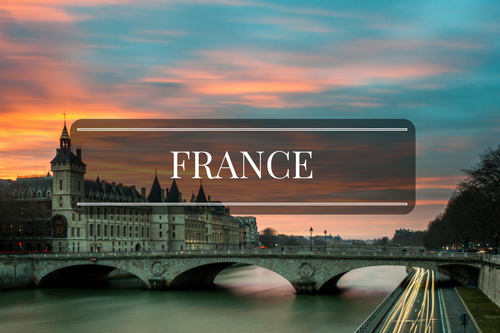
France is known for its many popular sights and boasts some incredible works of architecture, delicious food, and a rich history and cultural background. It has maintained a good record when it comes to being environmentally friendly, and is known for its low levels of pollution and its excellent forest and water policies. The country is also known for very high standards of sanitation and earned a score of over 95 percent in the areas of air pollution, ecosystem ozone and fisheries management on the Environmental Performance Index (EPI).
France is a great place to live, and there are lots of accommodation options for expats. Most real estate agents have their listings displayed on their windows or even online. The pace of life is slow and easy here, with locals often having two-hour long lunches during the work day. Public transport is easy to navigate and reasonably priced. Expats in the rural areas of France would need to have a car to get around.
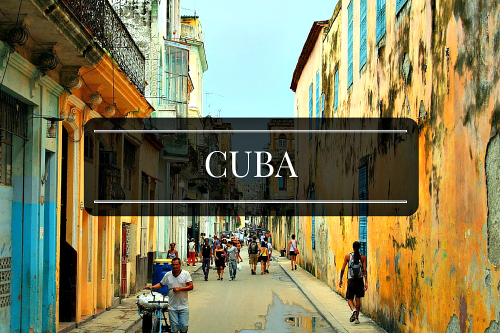
Cuba is situated in the northern Caribbean, where the Atlantic Ocean, the Caribbean Sea and the Gulf of Mexico meet. The capital of Cuba is Havana, which is also the largest city in the country. While this is not one of the most developed countries in the world, it is still known for its cleanliness and hygiene. The people here are healthy and the country has an excellent healthcare system that is among the best in the world. Cuba is also known for its lush landscapes, colonial architecture, beaches and warm climate. There are also a number or world-renowned heritage sites and museums here, and an abundance of picturesque views. The country is not very densely populated and has a population of about 11.3 million people.
Expats should be aware that Cuba is prone to extreme weather conditions. Hurricane season runs between June and November. The country also has a bit of a problem with opportunistic theft, so expats should avoid walking around at night and use only legitimate taxis when travelling.
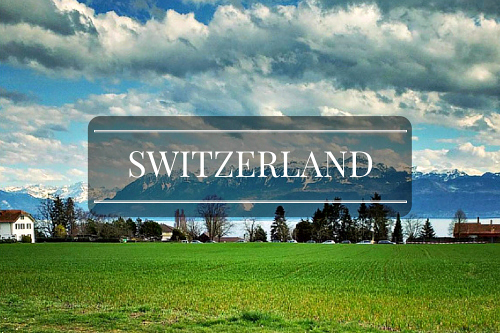
With an Environmental Performance Index of 89.1, Switzerland is ranked as one of the cleanest places in the world. The country is known for its snowy mountains, chocolates and watches and is one of the most popular travel destinations. There are exceptionally high standards of hygiene and water quality that are exercised in the country. Switzerland also ranks highly in environmental indicators like sanitation, pesticide regulation, forest health etc. Residents are offered the best medical facilities and medicines and the average life expectancy here is 81 years. The air and water here are considered to be cleaner than most other places in the world. It is also one of the most developed and rich countries.
The lifestyle in Switzerland is great for expats with families but might be a bit on the quiet side for those who are single. The culture promotes a lot of outdoor activities and gatherings, and there are a lot of family-friendly places like gardens and lakes, walking tours and bike trails. Skiing is a popular sport in the winter time. The public schools here offer a high standard of education and there are also international schools to choose from.
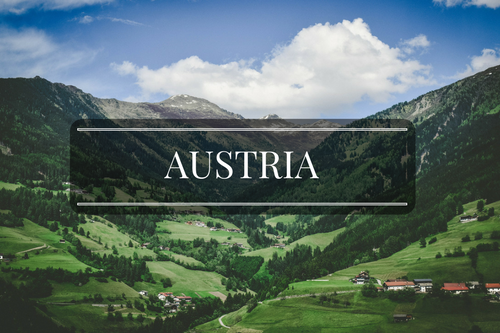
Located in central Europe, Austria has a rich cultural history and past. The government here strives very hard to maintain high levels of sanitation, protect marine life and forests, and also to provide high-quality drinking water to the population. There are very strict recycling laws enforced throughout the country, and the whole place is virtually spotless. The restaurants are big and beautiful, the architectural sites are exquisite, and there are high summits and fields in the distance almost everywhere you go. Austria is also known as the winter capital of Europe and is home to some beautiful palaces, castles and opera houses. Even the lakes and rivers here are said to be maintained at drinking water quality.
Austria is home to a thriving expat population and is a multicultural country. It has a very convenient, central location in Europe and well connected to the rest of Europe as well. The immigration model is very flexible here, and makes it very easy for expats to get residence. There is a program called the Red-White-Red Card program that lets expats settle here for one year, pending employment.
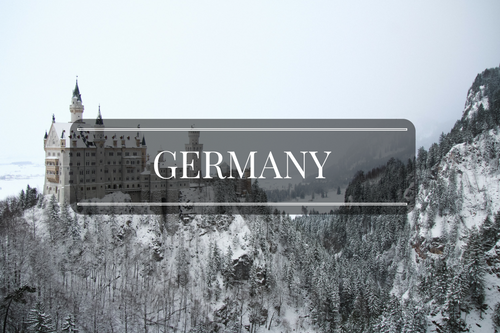
Blessed with natural beauty, Germany is known for its mountains, rivers and forests. The country has a temperate climate which is why it is popular with tourists who come to visit. Germany is pioneering an energy revolution called ‘energiewende’ and moving towards getting most of its energy for renewable sources like wind and solar power. The country has promised aggressive emission cuts amounting to at least 80 percent by 2050.
Germany’s approach to pollution and cleanliness is part of the wider culture – life here is very orderly, the streets and parks are clean, and there is a certain discipline and structure to most activities and processes. The country’s healthcare system is excellent, the education system is also great, and there are a number of international schools available. Expats should however note that finding the perfect apartment or house might take some time, and it does help to speak the language.
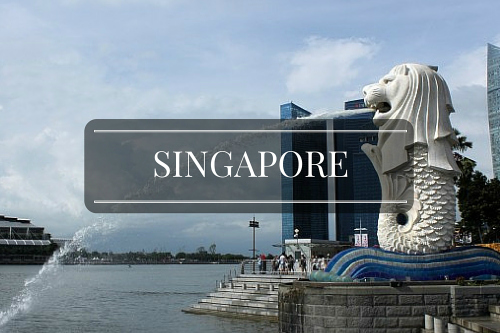
Singapore is listed as one of the cleanest and safest countries in the world. The crime rate is exceptionally low, and the streets are clean and tidy as well. Over the years, the city has become known for its restrictions on spitting, littering and chewing gum, with perpetrators being fined or jailed for not complying. The country operates like clockwork, with strict performance targets in the airline and hospitality industries. Temperatures around the year range from mild to warm, with no real winter, which can take some getting used to by expats who have previously lived in colder climates.
There’s a lot of choice in Singapore for expats when it comes to accommodation, from government-owned flats to privately owned apartments or condos. Most apartments come with amenities like a swimming pool, gym etc. Singapore is well connected by road and public transport. Expats will find it very easy to navigate by bus or MRT (Mass Rapid Transit). Public transport is very affordable and a great option for travel. Cabs are another way to get around.
Is pollution an important consideration for you? Share your thoughts in the comments!

